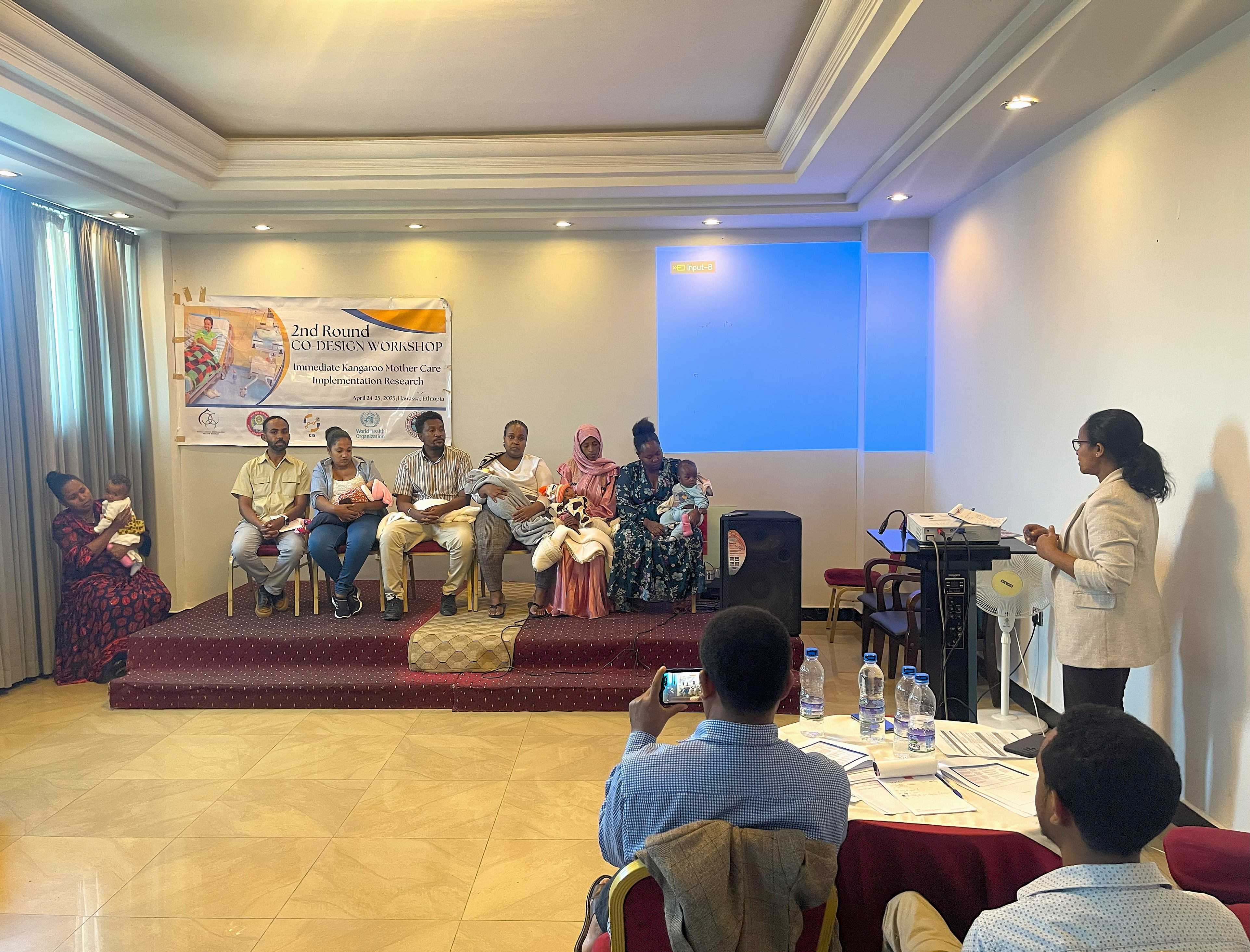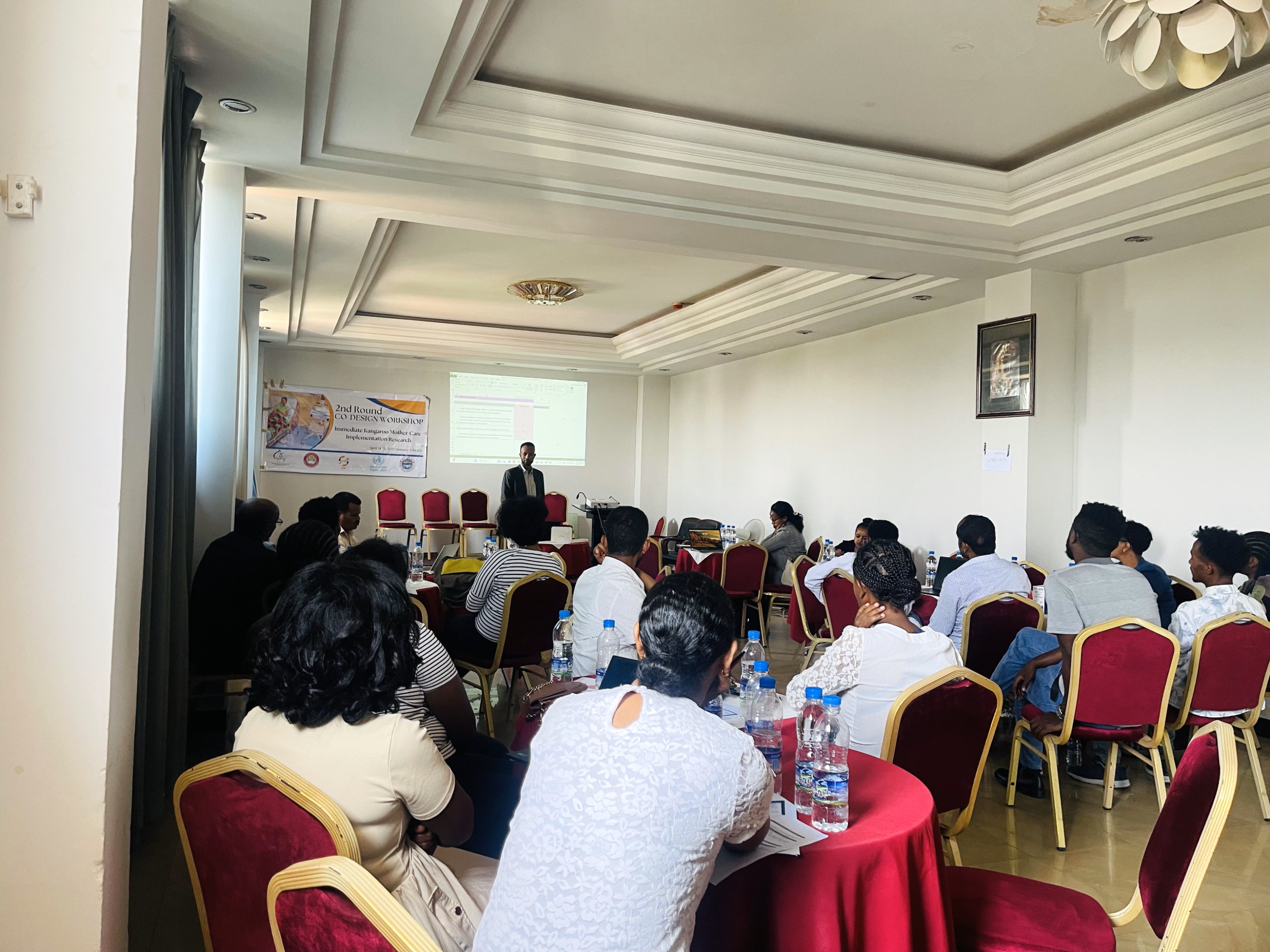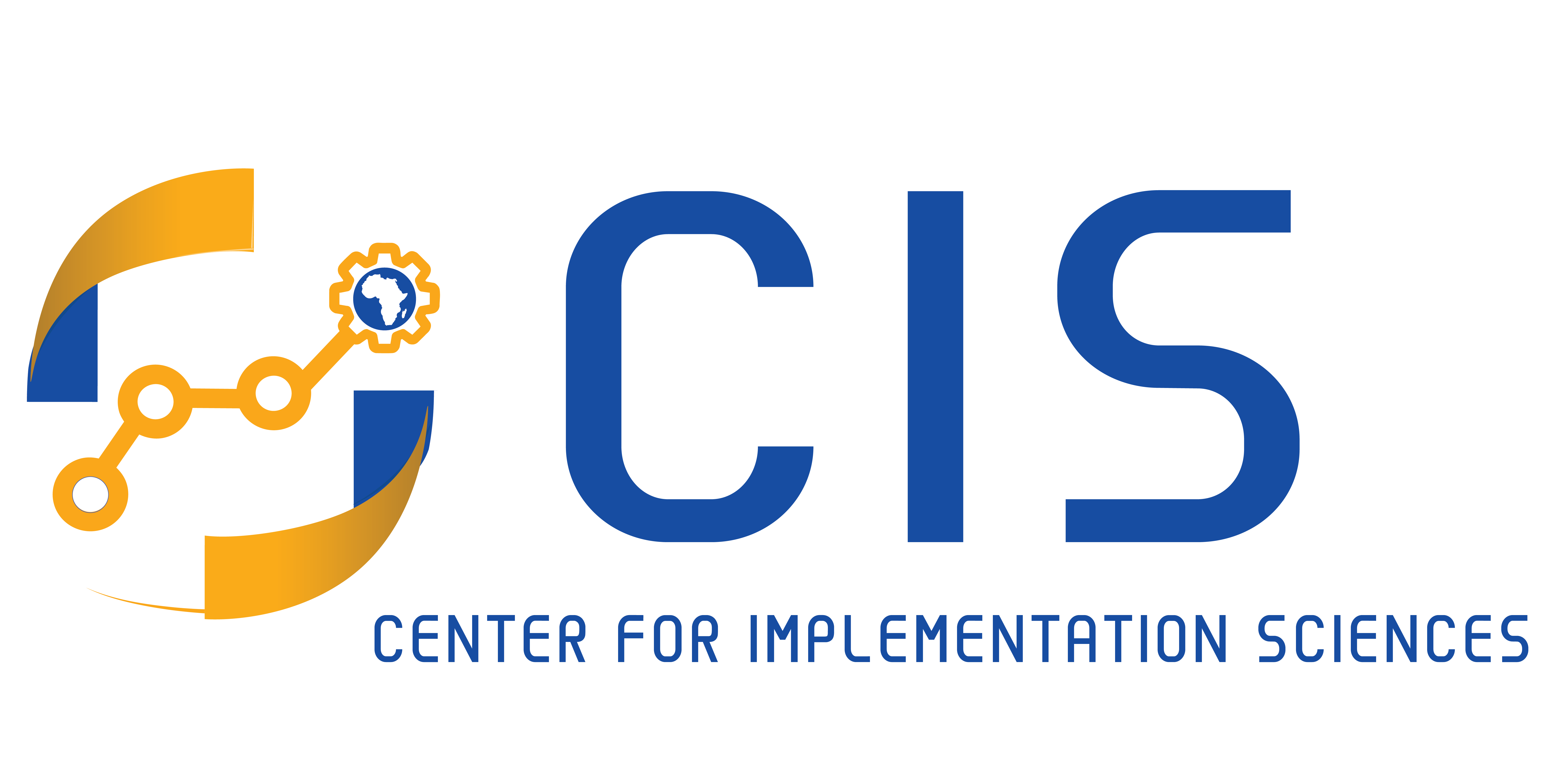The Center for Implementation Science at Addis Ababa University, in collaboration with Hawassa University, the World Health Organization, the Ministry of Health, and the Sidama Regional Health Bureau, hosted the second round of the iKMC co-design workshop on April 24–25. This workshop aimed to review the initial iKMC model and develop an improved version for wider implementation.
The event brought together policymakers, implementation research team members, frontline maternal and neonatal healthcare providers, and parents of preterm infants who had previously received iKMC treatment. Participants reviewed progress, identified implementation barriers, shared real-world experiences, proposed solutions, and prioritized strategies for overcoming key challenges. Despite iKMC’s proven effectiveness, it remains underutilized, making discussions in this workshop crucial for refining its implementation.
Key Highlights
- Parents’ voices: Parents shared moving testimonies about the emotional and practical challenges of caring for preterm infants, both during hospital stays and after discharge. They emphasized the need for improved counseling, community outreach, and awareness campaigns using visual platforms and social media.
- Barriers and strategies: Participants worked in groups to identify key challenges in implementing iKMC, highlight priority areas requiring immediate attention, and propose and prioritize strategies to address these barriers.
- Health worker reflections: Doctors, nurses, midwives, health managers, and stakeholders stressed the importance of better communication with families, stronger labor ward practices, and enhanced community engagement to improve iKMC uptake.
By the end of the workshop, four priority action areas were identified:
- Strengthening antenatal care to prepare parents for iKMC
- Initiating iKMC in the delivery ward
- Improving transportation care for preterm and low birth weight infants from delivery to mother-newborn intensive care unit (M-NICU)
- Promoting exclusive breastmilk feeding
Linkage of iKMC with early child development
“If we change the beginning of the story, we change the whole story.”
Meles Solomon, National Newborn and Child Health Desk Lead at the Ministry of Health, introduced the national Early Childhood Development framework and priority activities, highlighting the importance of investing in holistic child development from conception. He emphasized the critical importance of the first three years and the need to integrate early childhood development care into the neonatal healthcare practices, including iKMC. He also stressed the importance of sustainability and continuing efforts to embed iKMC into routine maternal and newborn care.
Closing Remarks
Abiy Seifu, Principal Investigator of the iKMC project, closed the meeting by emphasizing the vital role of families as co-providers of care. Participants reflected on the necessity of early skin-to-skin initiation and the importance of sustainable, community-driven approaches that integrate healthcare with grassroots advocacy efforts.
Next Steps
Insights from the workshop will directly inform changes to the iKMC model, ensuring a more family-centered approach and strengthening newborn care practices. The refined model will be implemented with a focus on sustainability and accessibility, helping improve maternal and neonatal outcomes.
#Pretermbirth #Lowbirthweight #SSNC #iKMC #Ethiopia



